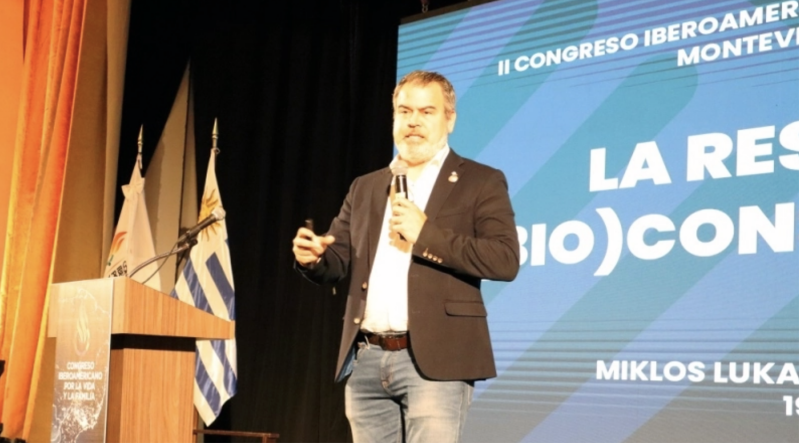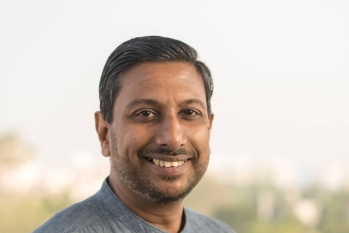
In a provocative speech rich with philosophical references, Miklos Lukacs de Pereny, a Peruvian analyst and author specializing in science, technology, and politics, warned that the greatest threats facing humanity today are not economic or political, but deeply anthropological and spiritual.
“What we are witnessing is a reconfiguration of the concept of the human being in the name of technological progress, and that leads directly to dehumanization,” Lukacs told hundreds of parliamentarians, social leaders, and religious figures gathered this past week at the Ibero-American Congress for Life and Family, held in Montevideo.
The continental event, which brought together representatives from more than 15 countries, aimed to develop a shared political agenda based on the defense of life, family, religious freedom, and human dignity.
The ideology of progress as a civilizational threat
Lukacs focused his presentation on dismantling what he called the “globalist progressive matrix,” embodied by ideologies such as radical feminism, gender ideology, and, in its most extreme form, transhumanism. He argued that these movements seek to redefine what it means to be human in order to reengineer human beings through technology—all under the premise of building a godless earthly paradise.
“This is no longer just about changing ideas; it’s about altering the very biology of human beings through genetic editing, chimeras, and the fusion of bodies with chips and cloud-connected devices,” he warned, noting that what was once science fiction is now technically possible.
He criticized how many of these ideas are presented as advances in human rights when, in reality, they pose a threat to human nature itself. He cited examples such as the promotion of post-birth abortion by some academic sectors and gender reassignment surgeries on minors as symptoms of a culture that has lost its moral compass.
Against scientism and the idolatry of freedom
Lukacs challenged the idea that science alone can answer all human questions. “Science cannot explain the purpose of your life or give you moral criteria. If we say that only science is truth, we strip human beings of their humanity,” he said.
He argued that scientism has created a new secular religion that disqualifies any transcendent view of the human person. “They want us to believe that we are purely material and rational beings, when in fact we are also spiritual—beings with emotions, affections, and purpose.”
He also rejected the liberal notion that freedom is an end in itself. “Freedom is not about doing whatever you want. It is for serving others and living with purpose. When freedom becomes an absolute, it is used to justify all kinds of atrocities,” he said.
Toward a bioconservative response
In light of these challenges, Lukacs proposed a new vision he called bioconservatism, which defends human dignity, the natural family, and technological limits from a perspective that transcends the traditional left-right political divide.
“This is not a battle between political parties. It is a battle between those who want to preserve what it means to be human and those who want to destroy it in the name of progress,” he declared.
He called for moving beyond ideological labels and building a broad alliance among people of different backgrounds who are willing to stand for life and truth—even if it means being labeled backward or intolerant. “What’s at stake is our very humanity.”






